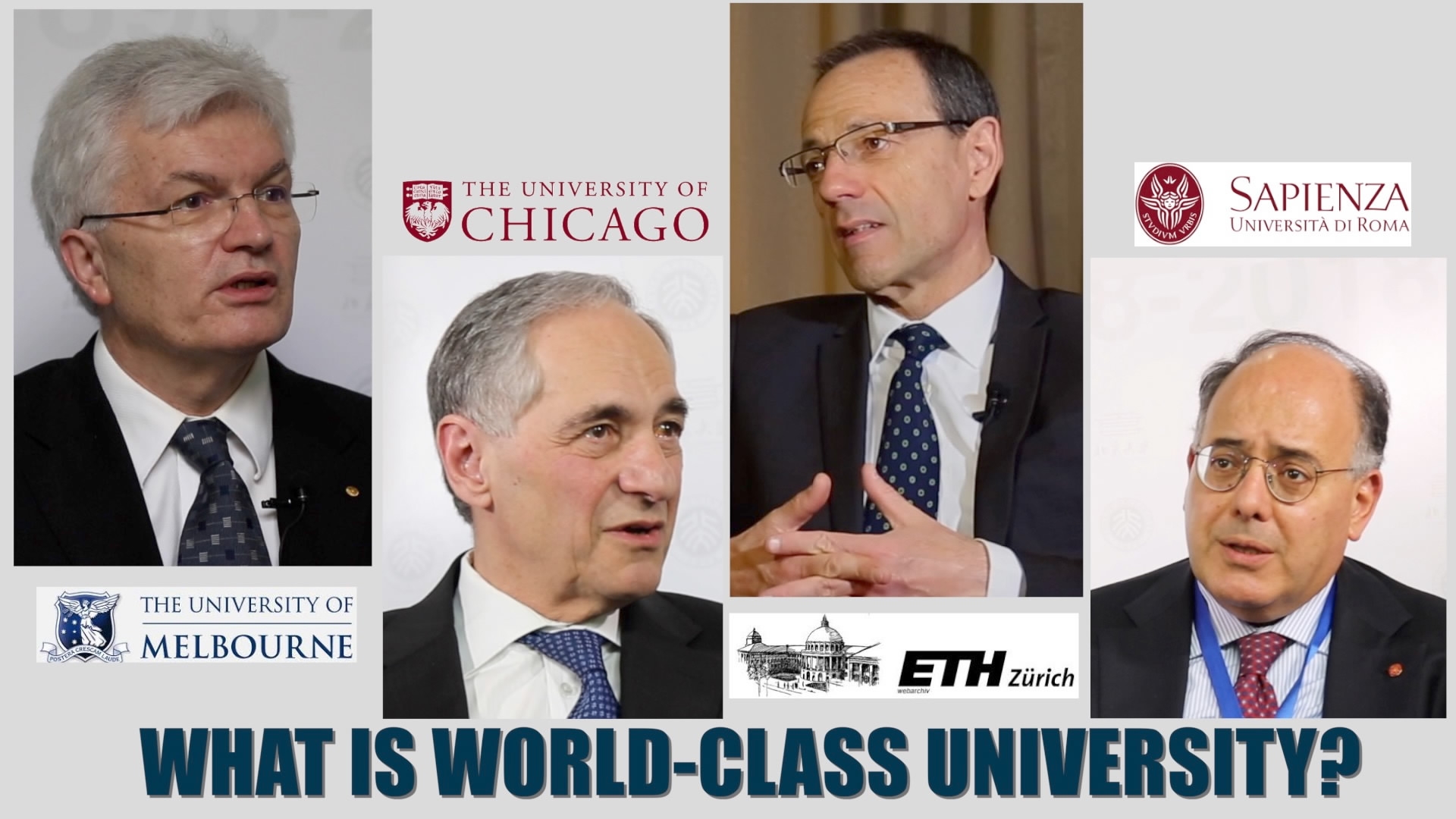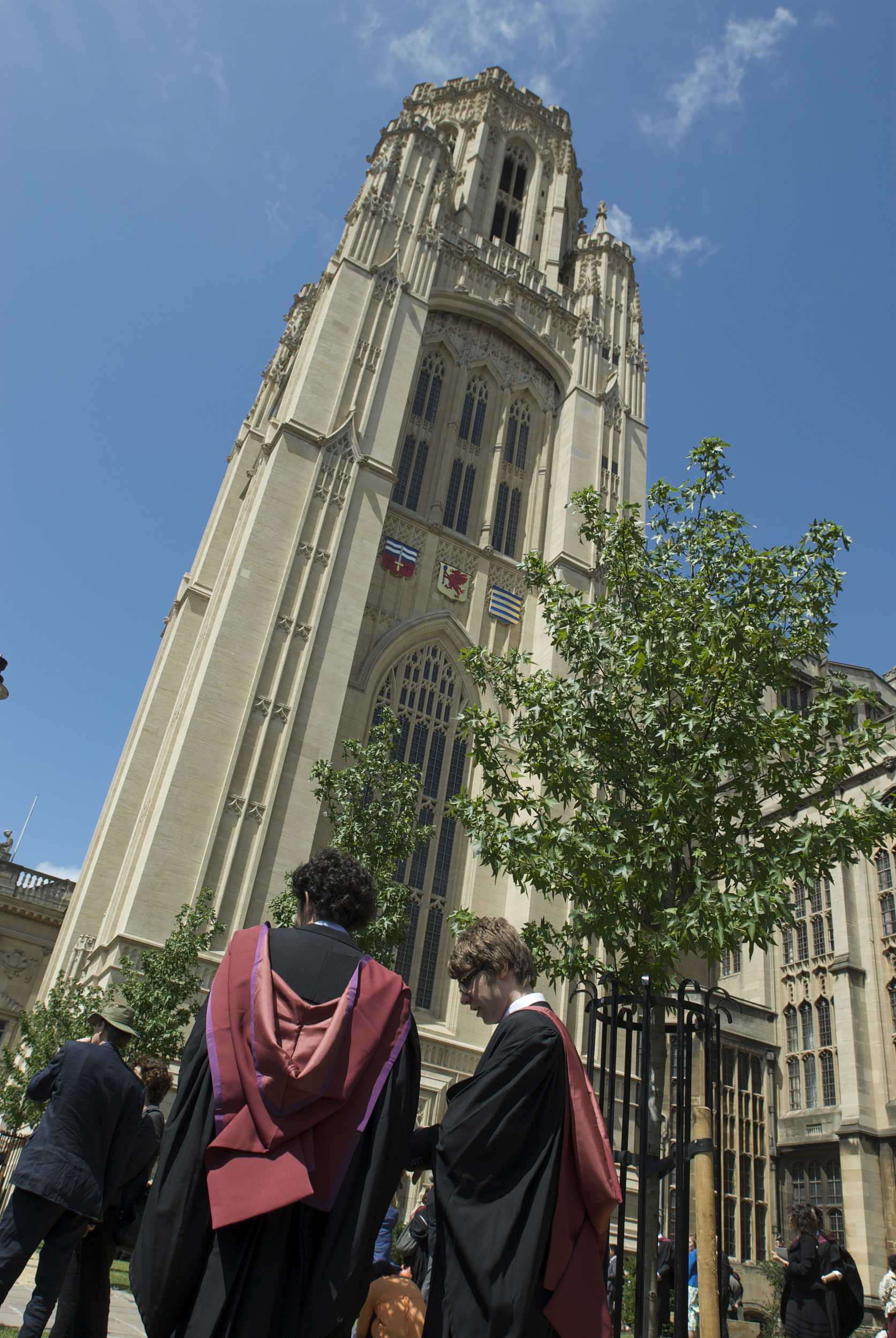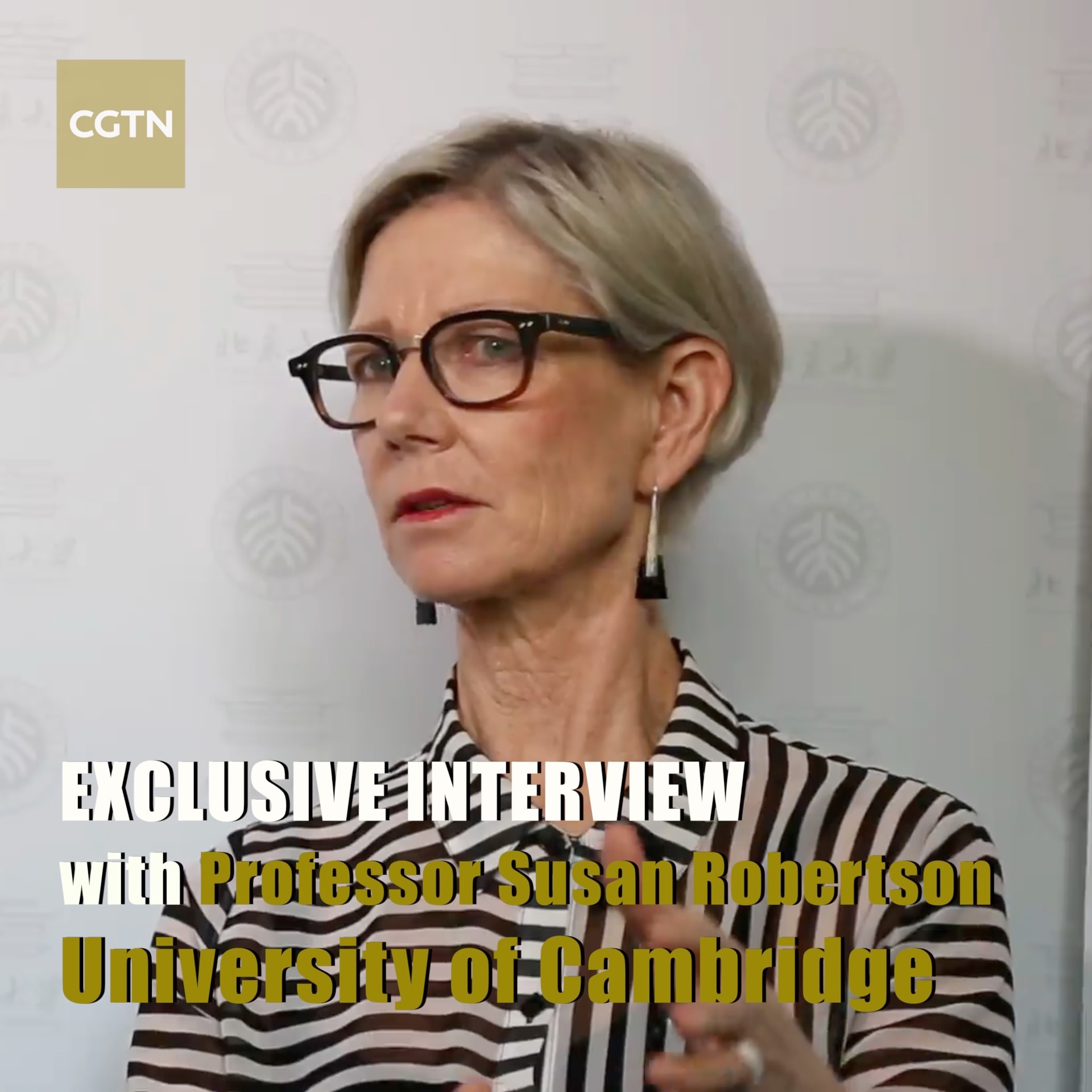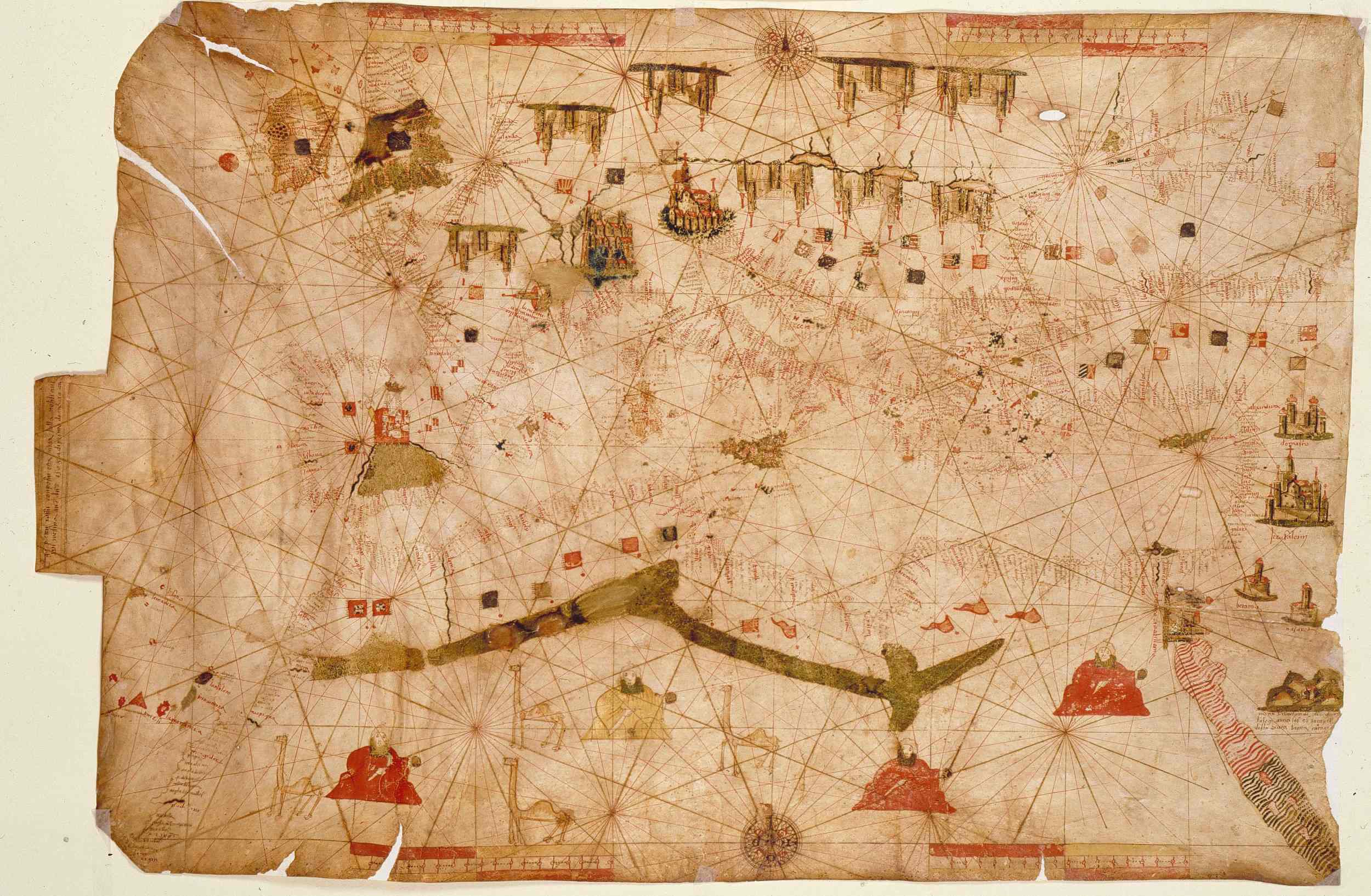
Culture
16:00, 13-May-2018
University in a connected world: Ivory tower of strength
CGTN
02:00

In its original biblical sense, “ivory tower” denotes “noble purity,” but it has diversified into a signifier of unworldly intellectual isolation that’s often associated with university only after the 19th century.
Despite the lengthy period it took for the connotation to be coined, the figurative transformation isn’t demanding: When it is too hard to cope with all the imperfections in the world, philosophical reclusion appears to be the last resort of intellectual purity.
However, as the world is rushing towards a future of increasing connectedness in nearly all fronts, inroads due to social practicalities into this sheltered scholarly resort will only grow larger.
A recent global event had triggered discussions on the issues that are facing educators worldwide. Under the guidance of China’s Ministry of Education, Peking University hosted the World University Presidents Symposium & Beijing Forum 2018.
Presidents and scholars of 261 universities from 44 countries and regions came together to discuss the theme “Changes and Constants: Universities and Civilizations During the Past 120 Years”.

University graduates in grounds of Bristol University. /VCG Photo
University graduates in grounds of Bristol University. /VCG Photo
On the one hand, the democratizing power of information technology is gnawing at the university’s monopoly over higher education. Projects such as MOOCs, or Massive Open Online Courses, have provided an alternative to brick-and-mortar classroom learning with training online.
They are also more responsive in meeting increasingly diverse and niche demands by unbundling courses into smaller components, as opposed to the relatively rigid system in universities. Less costly and more flexible accessibility makes the model popular with people who cannot afford the money or time for traditional full-time training.
Universities are not completely blind to the trend and have been working with the established brands in the field.
The cooperation can take on forms as simple as university scholars giving lectures on the platforms.
Susan Robertson, a professor of education at the University of Cambridge, who has taken part in MOOCs, found that one of the most characteristic challenges in online teaching stems from the sheer number of participants and the rich sources of relevant reading materials that they can access on the Internet.
01:28

“This made me think, ‘Oh my goodness: MOOC is teaching thousands of students at a time’,” the professor told CGTN on the sidelines of the World University Presidents Symposium held last week in Beijing. “I did a huge amount of work, maybe more work than it took for my normal class that I might teach.”
Yet academics are not free from reservations about the radical changes that some online education practitioners have promised.
Professor Robertson believes that in the face of the competition from online education service providers, universities still hold advantages.
Face-to-face discussion, for example, is a better way to maintain an organized exchange of ideas than an online seminar where students could be stuck in their own thread of thinking and miss what others are contributing.
“The best provision of education seems to be some kind of combination of those two of things (online and offline presence). It’s typically never just one.”

The premium is high. /VCG Photo
The premium is high. /VCG Photo
Career development is another factor that continuously sets young people and universities on edge today.
Three forces are driving down the perceived financial value of a university degree. The world’s ongoing recovery from the global financial meltdown of 2007 means that the toll on economic growth and government funding for public services may linger.
If tuition fees are effectively increasing and financial aid shrinking, expectations of lower incomes could be the last straw on prospective students’ cost-benefit analysis of an investment in university. This is a predicament that besets even the world’s largest economy.
“The big problem in the US right now is that with the decrease of the support for public universities, the pressure on individuals without resources to borrow more money to pay for their education is very high,” said Robert Zimmer, president of the University of Chicago. “At some point, the debt load simply gets to be too much for people to want to take on and they lose the ambition for getting the best education they can.”

No humans. /VCG Photo
No humans. /VCG Photo
In the meantime, new business models, realized by cutting-edge technologies, are wiping out jobs at a faster rate than creating them.
An oft-cited 2013 study by University of Oxford concluded gloomily that 47 percent of today’s jobs could give in to automation within 25 years.
Although more positive predictions are not in short supply, the newly created positions may simply require skills that educational institutions slow to catch up with the times will fail to prepare their students with.
More fundamentally, there is a glut of graduates as access to higher education has significantly expanded.
“Simple economic says that if you provide more graduates, then the value of being a graduate would fall. That’s just life,” said Professor Glyn Davis, Vice Chancellor of the University of Melbourne.
“One of the questions is we’ve had an expectation that if you are a graduate you would have a privileged life, you would earn more money, you would have a better standard of living. That’s still true but not as true as it once was.”

Behind the garage door, it's not always a unicorn. /VCG Photo
Behind the garage door, it's not always a unicorn. /VCG Photo
The Silicon Valley myth of the tech genius building his startup from his garage is becoming more intriguing to policymakers keen on solving the job issue, especially when the conventional wisdom that the economy can be powered by government investments in education loses its shine in the face of plateauing real wages.
“Starting your own business idea has become more and more important. This will help to reduce youth employment and to give freedom to the young people so they can explore their commercial ideas that they have,” said Lino Guzzella, president of ETH Zürich.
“I think start-ups will become the expected part of many people’s pathways,” said Mr. Davis. “The questions is, can we generate enough good ideas, enough new knowledge, enough intellectual property to keep supporting start-ups?”

A Nautical chart of the Mediterranean Sea, drawn in 1508 and found in the collection of Museo Marítimo, Barcelona. "Human history is a history of migration," said Professor Eugenio Gaudio, Rector of Sapienza University of Rome to CGTN. /VCG Photo
A Nautical chart of the Mediterranean Sea, drawn in 1508 and found in the collection of Museo Marítimo, Barcelona. "Human history is a history of migration," said Professor Eugenio Gaudio, Rector of Sapienza University of Rome to CGTN. /VCG Photo
Despite the challenges that have emerged with globalization, all of the experts interviewed by CGTN agreed that higher education has largely been the beneficiary of the free movement of talents, capital and ideas.
“Universities can’t be an island within a nation and a nation separated from other nations,” Professor Robertson stressed.
The unease with rapid technological and social changes aside, universities are expected to be an intellectual force that balances the de-globalization trend epitomized by the UK’s divorce from the EU and the rhetoric on global cooperation with which Donald Trump had won the Oval Office.
“I know that in many countries, also in Italy, we have some problems. We have the problem of refugees, the problem of migration. But only with cultural approach can we solve this problem,” said Professor Eugenio Gaudio, Rector of Sapienza University of Rome.
For universities to better engage with society and the general public, Professor Roberson thought that the language of communication has to be closer to the heart of the more technologically savvy generation.
“We can learn to write differently, we can learn to write blogs for the public and we can learn to access the tweet world.”
“It’s very important for faculties and students of universities in any country to actually learn to recognize different cultures, different histories and how all these things have impact on the present day. The more exchange there is, the more everyone will understand themselves,” Professor Zimmer said.
“This is also for peace. Peace is possible only when two people know each other and share discussion, projects and also values,” Professor Gaudio observed .

SITEMAP
Copyright © 2018 CGTN. Beijing ICP prepared NO.16065310-3
Copyright © 2018 CGTN. Beijing ICP prepared NO.16065310-3